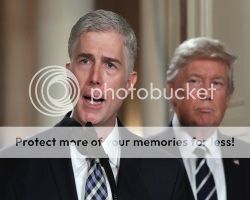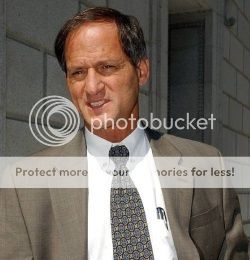
Supreme Court nominee Neil Gorsuch with President Trump
It doesn’t take much research or ‘soul searching’ to know that any Supreme Court nominee by President Trump would NOT be friendly to issues of concern to secular people. You don’t even need to do any Internet searching because the major freethought groups already have the goods on Neil Gorsuch. Obviously, any ‘little Scalia’ is no friend of ours.



